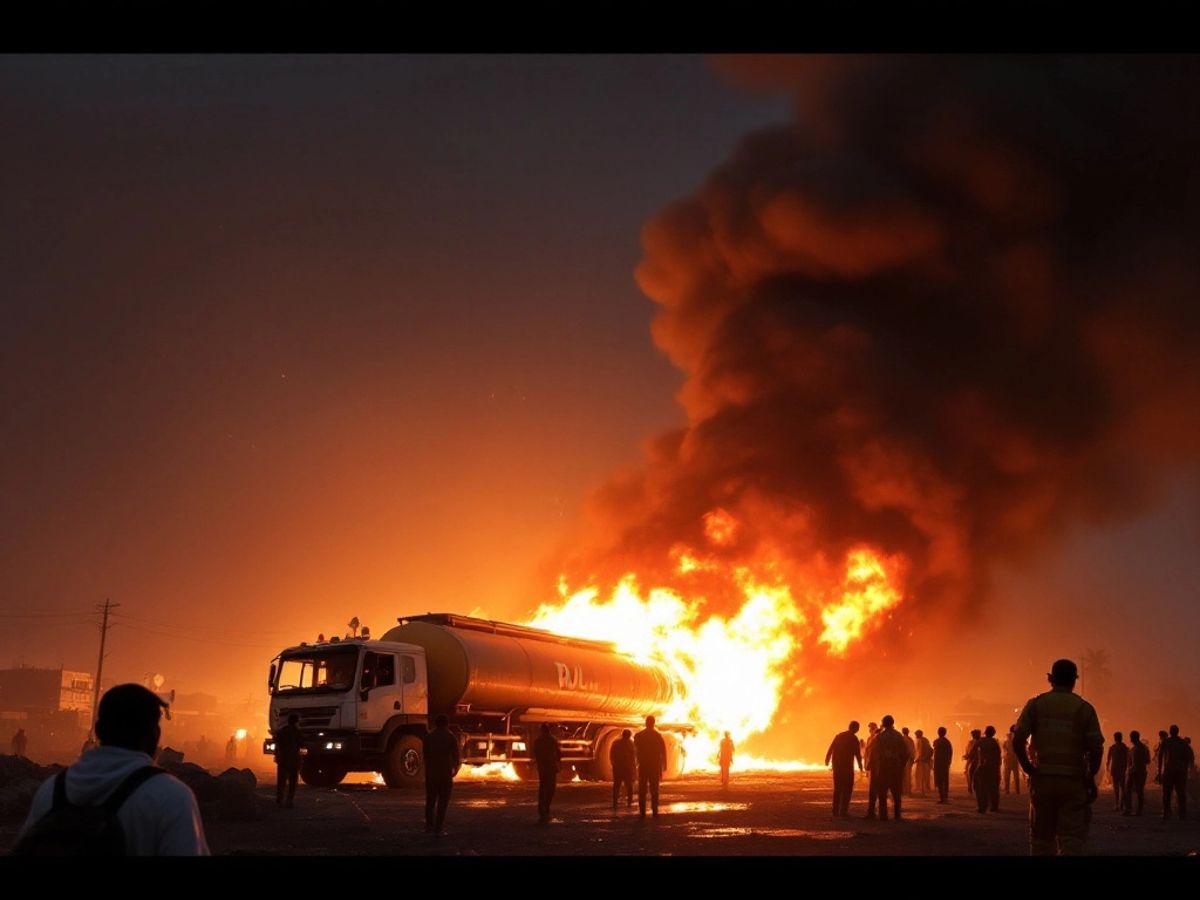More than 140 people lost their lives in a devastating fuel tanker explosion in Nigeria's Jigawa state on October 16, 2024. The incident occurred when a tanker overturned, spilling fuel and igniting a massive fire as locals rushed to collect the spilled gasoline. Eyewitness accounts reveal the chaos that ensued, highlighting the dangers associated with such accidents in the country.
Key Takeaways
- Over 140 fatalities reported, with many more injured.
- The explosion occurred in Majiya town, Jigawa state.
- Locals attempted to collect spilled fuel, leading to the explosion.
- Previous incidents have raised concerns about road safety and regulations.
Incident Overview
The tragic event unfolded late Tuesday night when a fuel tanker lost control on a highway in Majiya town, near the northern city of Kano. As the tanker overturned, residents flocked to the scene, hoping to salvage some of the spilled fuel. Unfortunately, this led to a catastrophic explosion that engulfed the area in flames.
Local emergency services reported that the death toll could rise as many victims were severely burned, making identification difficult. A mass burial was conducted for the deceased, with officials indicating that the number of casualties might increase as more bodies are recovered.
Eyewitness Accounts
Eyewitnesses described a scene of horror as the fire spread rapidly. One resident recounted, "People were running in all directions, screaming for help." The quick response of locals to collect fuel, a common practice in Nigeria due to soaring prices, turned deadly in this instance.
Previous Incidents and Safety Concerns
This incident is not isolated; Nigeria has a troubling history of fuel tanker accidents. In September, a similar explosion resulted in the deaths of at least 48 people when a tanker collided with another vehicle. The frequency of such accidents raises serious questions about road safety and the enforcement of regulations.
According to the Federal Road Safety Corps, there were over 1,500 fuel tanker accidents in 2020 alone, resulting in hundreds of deaths. Experts attribute these incidents to a combination of reckless driving, poor road conditions, and inadequate safety measures.
Economic Context
The backdrop of this tragedy is Nigeria's ongoing economic crisis, exacerbated by the removal of fuel subsidies in May 2023. Fuel prices have surged, leading many to risk their lives in search of cheaper gasoline. The government has faced criticism for its handling of the economy and the lack of effective safety regulations for fuel transport.
Government Response
In the wake of this disaster, Nigerian Vice President Kashim Shettima called for a review of safety measures related to fuel transport. He emphasized the need for immediate support for the victims and their families. Lawmakers in the Senate observed a moment of silence to honor those who lost their lives in this tragic event.
Conclusion
The fuel tanker explosion in Jigawa state serves as a grim reminder of the dangers associated with fuel transport in Nigeria. As the nation grapples with economic challenges and a history of road safety issues, the need for comprehensive reforms and stricter enforcement of safety regulations has never been more urgent. The loss of life in this incident underscores the human cost of negligence and the desperate measures people take in times of crisis.








